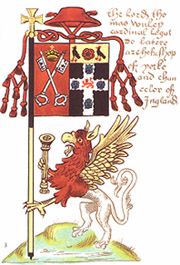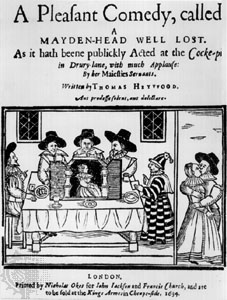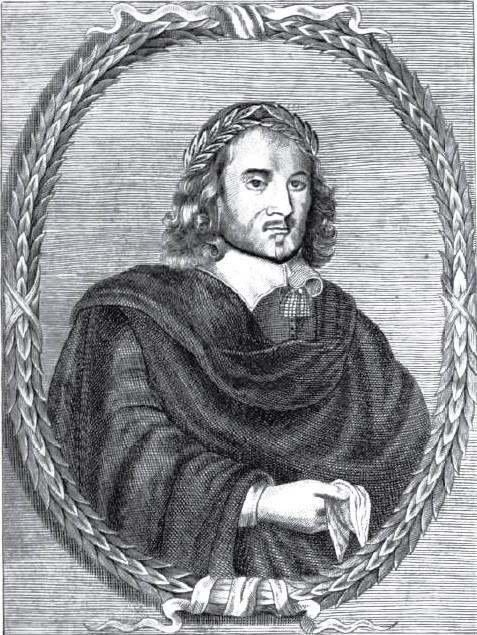|
1599 In Poetry
Nationality words link to articles with information on the nation's poetry or literature (for instance, Irish or France). Events * Samuel Daniel becomes poet laureate in England this year (on his death in 1619 he is succeeded by Ben Jonson) Works published * Robert Allott, ''Wits Theater of the Little World'' (third in the "Wits Series"; see also Ling's ''Politeuphuia'' 1597; Meres' ''Palladis Tamia'' 1598; Wrednot, ''Palladis Palatium'' 1604)Cox, Michael, editor, ''The Concise Oxford Chronology of English Literature'', Oxford University Press, 2004, * Nicholas Breton, ''The Passions of the Spirit'', published anonymously * Thomas Churchyard, ''The Fortunate Farewel to the Most Forward and Noble Earle of Essex'' * Samuel Daniel, ''The Poeticall Essayes of Sam. Danyel'', including ''The Civiill Wars'' in five books (see also ''The First Fowre Bookes'' 1595, ''Works'' ix books1601; ''Civile Wares'' ight books1609) *Sir John Davies: ** ''Hymnes of Astraea, in Acrosticke Verse'' ... [...More Info...] [...Related Items...] OR: [Wikipedia] [Google] [Baidu] |
Irish Poetry
Irish poetry is poetry written by poets from Ireland. It is mainly written in Irish language, Irish and English, though some is in Scottish Gaelic literature, Scottish Gaelic and some in Hiberno-Latin. The complex interplay between the two main traditions, and between both of them and other poetries in English and Scottish Gaelic literature, Scottish Gaelic, has produced a body of work that is both rich in variety and difficult to categorise. The earliest surviving poems in Irish date back to the 6th century, while the first known poems in English from Ireland date to the 14th century. Although there has always been some cross-fertilization between the two language traditions, an English-language poetry that had absorbed themes and models from Irish did not finally emerge until the 19th century. This culminated in the work of the poets of the Irish Literary Revival in the late 19th and early 20th century. Towards the last quarter of the 20th century, modern Irish poetry tended ... [...More Info...] [...Related Items...] OR: [Wikipedia] [Google] [Baidu] |
John Davies (poet, Born 1569)
Sir John Davies (16 April 1569 (baptised)8 December 1626) was an English poet, lawyer, and politician who sat in the House of Commons at various times between 1597 and 1621. He became Attorney General for Ireland and formulated many of the legal principles that underpinned the British Empire. Early life Davies was born in Wiltshire, possibly at Chicksgrove Manor at Lower Chicksgrove, to John and Mary Davies. He was educated at Winchester College for four years, a period in which he showed much interest in literature. He studied there until the age of sixteen and went to further his education at the Queen's College, Oxford, where he stayed for just eighteen months, with most historians questioning whether he received a degree. Davies spent some time at New Inn after his departure from Oxford, and it was at this point that he decided to pursue a career in law. In 1588 he enrolled in the Middle Temple, where he did well academically, although suffering constant reprimands for his ... [...More Info...] [...Related Items...] OR: [Wikipedia] [Google] [Baidu] |
Thomas Wolsey
Thomas Wolsey ( – 29 November 1530) was an English statesman and Catholic bishop. When Henry VIII became King of England in 1509, Wolsey became the king's almoner. Wolsey's affairs prospered and by 1514 he had become the controlling figure in virtually all matters of state. He also held important ecclesiastical appointments. These included the Archbishopric of York—the second most important role in the English church—and that of papal legate. His appointment as a cardinal by Pope Leo X in 1515 gave him precedence over all other English clergy. The highest political position Wolsey attained was Lord Chancellor, the king's chief adviser (formally, as his successor and disciple Thomas Cromwell was not). In that position, he enjoyed great freedom and was often depicted as an ''alter rex'' ("other king"). After failing to negotiate an annulment of Henry's marriage to Catherine of Aragon, Wolsey fell out of favour and was stripped of his government titles. He retreated to ... [...More Info...] [...Related Items...] OR: [Wikipedia] [Google] [Baidu] |
Thomas Storer
Thomas Storer (c. 1571 – 1604) was an English poet and mathematician. His major work was the ''Life and Death of Cardinal Wolsey''. Life He was the son of John Storer of London. He was elected a student of Christ Church, Oxford, in 1587, and graduated B.A. on 27 March 1591, M.A. on 13 May 1604. He died in London in November 1604, and was buried in the church of St Michael Bassishaw. Works In 1599 appeared ''The Life and Death of Thomas Wolsey, cardinall. … By Thomas Storer, student of Christ Church in Oxford. At London printed by Thomas Dawson''. The poem is written on the model of Thomas Churchyard's legend on the history of Wolsey in '' The Mirrour for Magistrates''. It consists of three parts, "Wolseius aspirans", "Wolseius triumphans", and "Wolseius moriens"; these contain respectively 101, 89, and 51 seven-line stanzas of decasyllabic verse (rhyming , as in rhyme royal). The volume is dedicated to John Howson, Queen Elizabeth's chaplain, and there are introductory verses ... [...More Info...] [...Related Items...] OR: [Wikipedia] [Google] [Baidu] |
Prothalamion
''Prothalamion'', the commonly used name of ,Cox, Michael, editor, ''The Concise Oxford Chronology of English Literature'', Oxford University Press, 2004, is a poem by Edmund Spenser (1552–1599), one of the important poets of the Tudor period in England. Published in 1596, it is a nuptial song that he composed that year on the occasion of the twin marriage of the daughters of the Earl of Worcester, Elizabeth Somerset and Katherine Somerset, to Sir Henry Guildford and William Petre, 2nd Baron Petre respectively. ''Prothalamion'' is written in the conventional form of a marriage song. The poem begins with a description of the River Thames where Spenser finds two beautiful maidens. The poet proceeds to praise them and wishing them all the blessings for their marriages. The poem begins with a fine description of the day when on which he is writing the poem: The poet is standing near the Thames River and finds a group of nymphs with baskets collecting flowers for the new brides. T ... [...More Info...] [...Related Items...] OR: [Wikipedia] [Google] [Baidu] |
Edmund Spenser
Edmund Spenser (; 1552/1553 – 13 January 1599) was an English poet best known for ''The Faerie Queene'', an epic poem and fantastical allegory celebrating the Tudor dynasty and Elizabeth I. He is recognized as one of the premier craftsmen of nascent Modern English verse and is often considered one of the greatest poets in the English language. Life Edmund Spenser was born in East Smithfield, London, around the year 1552; however, there is still some ambiguity as to the exact date of his birth. His parenthood is obscure, but he was probably the son of John Spenser, a journeyman clothmaker. As a young boy, he was educated in London at the Merchant Taylors' School and matriculated as a sizar at Pembroke College, Cambridge. While at Cambridge he became a friend of Gabriel Harvey and later consulted him, despite their differing views on poetry. In 1578, he became for a short time secretary to John Young, Bishop of Rochester. In 1579, he published ''The Shepheardes Calender'' and ... [...More Info...] [...Related Items...] OR: [Wikipedia] [Google] [Baidu] |
Thomas Heywood
Thomas Heywood (early 1570s – 16 August 1641) was an English playwright, actor, and author. His main contributions were to late Elizabethan and early Jacobean theatre. He is best known for his masterpiece ''A Woman Killed with Kindness'', a domestic tragedy, which was first performed in 1603 at the Rose Theatre by the Worcester's Men company. He was a prolific writer, claiming to have had "an entire hand or at least a maine finger in two hundred and twenty plays", although only a fraction of his work has survived. Early years Few details of Heywood's life have been documented with certainty. Most references indicate that the county of his birth was most likely Lincolnshire, while the year has been variously given as 1570, 1573, 1574 and 1575. It has been speculated that his father was a country parson and that he was related to the half-century-earlier dramatist John Heywood, whose death year is, again, uncertain, but indicated as having occurred not earlier than 1575 and n ... [...More Info...] [...Related Items...] OR: [Wikipedia] [Google] [Baidu] |
1612 In Poetry
Nationality words link to articles with information on the nation's poetry or literature (for instance, Irish or France). Works Great Britain * George Chapman, translator, ''Petrarchs Seven Penitentiall Psalms, Paraphrastically Translated''Cox, Michael, editor, ''The Concise Oxford Chronology of English Literature'', Oxford University Press, 2004, * William Corkine, ''Second Booke of Ayres, some to sing and play to the Basse-Violl alone: others to be sung to the Lute and Bass Viollin'', including "Break of Day" by John DonneDonne, John''The Complete English Poems'' Introduction and notes by A. J. Smith, "Table of Dates", p 20, Penguin Books, retrieved via Google Books on February 11, 2010 * John Davies, ''The Muses Sacrifice'' * John Donne, ''The First Anniversarie, An Anatomie of the World'' ..''The Second Anniversarie. Of the Progres of the Soule'', anonymously published together, although ''The Second Anniversarie'' has a separate, dated, title page (and was originally p ... [...More Info...] [...Related Items...] OR: [Wikipedia] [Google] [Baidu] |
Love's Labour's Lost
''Love's Labour's Lost'' is one of William Shakespeare's early comedies, believed to have been written in the mid-1590s for a performance at the Inns of Court before Elizabeth I of England, Queen Elizabeth I. It follows the King of Navarre and his three companions as they attempt to swear off the company of women for three years in order to focus on study and fasting. Their subsequent infatuation with the Princess of France and her ladies makes them forsworn (break their oath). In an untraditional ending for a comedy, the play closes with the death of the Princess's father, and all weddings are delayed for a year. The play draws on themes of masculine love and desire, reckoning and rationalisation, and reality versus fantasy. Though first published in quarto in 1598, the play's title page suggests a revision of an earlier version of the play. There are no obvious sources for the play's plot. The use of apostrophes in the play's title varies in early editions, though it is most ... [...More Info...] [...Related Items...] OR: [Wikipedia] [Google] [Baidu] |
William Shakespeare
William Shakespeare ( 26 April 1564 – 23 April 1616) was an English playwright, poet and actor. He is widely regarded as the greatest writer in the English language and the world's pre-eminent dramatist. He is often called England's national poet and the " Bard of Avon" (or simply "the Bard"). His extant works, including collaborations, consist of some 39 plays, 154 sonnets, three long narrative poems, and a few other verses, some of uncertain authorship. His plays have been translated into every major living language and are performed more often than those of any other playwright. He remains arguably the most influential writer in the English language, and his works continue to be studied and reinterpreted. Shakespeare was born and raised in Stratford-upon-Avon, Warwickshire. At the age of 18, he married Anne Hathaway, with whom he had three children: Susanna, and twins Hamnet and Judith. Sometime between 1585 and 1592, he began a successful career in London as an ... [...More Info...] [...Related Items...] OR: [Wikipedia] [Google] [Baidu] |
Thomas Middleton
Thomas Middleton (baptised 18 April 1580 – July 1627; also spelt ''Midleton'') was an English Jacobean playwright and poet. He, with John Fletcher and Ben Jonson, was among the most successful and prolific of playwrights at work in the Jacobean period, and among the few to gain equal success in comedy and tragedy. He was also a prolific writer of masques and pageants. Life Middleton was born in London and baptised on 18 April 1580. He was the son of a bricklayer, who had raised himself to the status of a gentleman and owned property adjoining the Curtain Theatre in Shoreditch. Middleton was five when his father died and his mother's subsequent remarriage dissolved into a 15-year battle over the inheritance of Thomas and his younger sister – an experience that informed him about the legal system and may have incited his repeated satire against the legal profession. Middleton attended The Queen's College, Oxford, matriculating in 1598, but he did not graduate. Before he ... [...More Info...] [...Related Items...] OR: [Wikipedia] [Google] [Baidu] |
Christopher Marlowe
Christopher Marlowe, also known as Kit Marlowe (; baptised 26 February 156430 May 1593), was an English playwright, poet and translator of the Elizabethan era. Marlowe is among the most famous of the Elizabethan playwrights. Based upon the "many imitations" of his play ''Tamburlaine,'' modern scholars consider him to have been the foremost dramatist in London in the years just before his mysterious early death. Some scholars also believe that he greatly influenced William Shakespeare, who was baptised in the same year as Marlowe and later succeeded him as the pre-eminent Elizabethan playwright. Marlowe was the first to achieve critical reputation for his use of blank verse, which became the standard for the era. His plays are distinguished by their overreaching protagonists. Themes found within Marlowe's literary works have been noted as humanistic with realistic emotions, which some scholars find difficult to reconcile with Marlowe's "anti-intellectualism" and his caterin ... [...More Info...] [...Related Items...] OR: [Wikipedia] [Google] [Baidu] |








